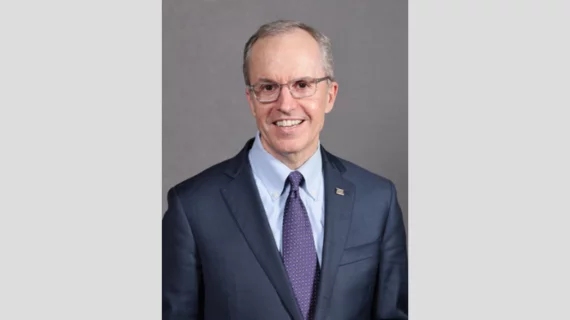The first day of RSNA 2022, the annual meeting of the Radiological Society of North America (RSNA), included news about changing leadership: Curtis P. Langlotz, MD, PhD, will serve as the new chair of the RSNA board of directors moving forward.
Langlotz is the director of Stanford University’s Center for Artificial Intelligence in Medicine and Imaging. He is also a professor of radiology, medicine, and biomedical data science, as well as associate chair for information systems in Stanford’s department of radiology.
Langlotz is well-acquainted with the RSNA mission, too, having served as a member of the board of directors since 2016 as the Liaison for Information Technology and Annual Meeting. In a statement from the RSNA about his new undertaking, Langlotz described his goals as chair.
"In the coming year, RSNA will continue to develop innovative programs, both virtual and in-person, that deliver the latest in education and research," Langlotz said. "We will continue to evolve our annual meeting, which offers unparalleled educational opportunities, cutting-edge scientific research and a place to connect with industry leaders offering the latest imaging technologies.”
Langlotz has also been on the RSNA Publications Council, the Research Development Committee, the Radiology Editor Search Committee and the Steering Committee for the RSNA Digital Roadmap.
He replaces Matthew A. Mauro, MD, who will be stepping into a new role as RSNA President. Adam E. Flanders, MD, who was honored with RSNA’s Outstanding Educator award in 2021, will take over the informatics portfolio from Langlotz.
Additional coverage of RSNA 2022 is available here and here.
